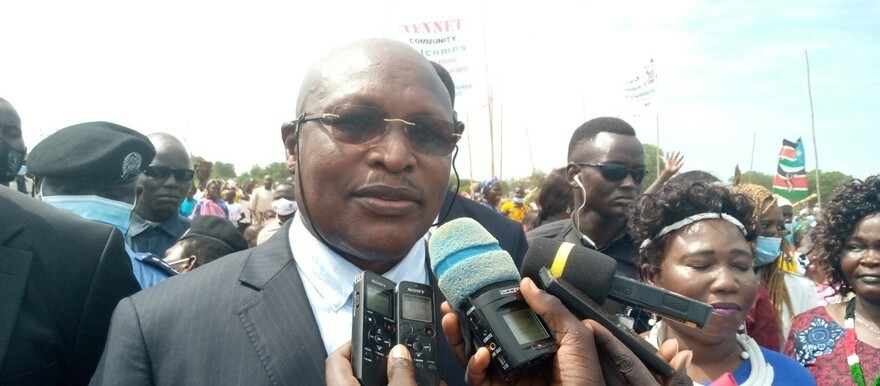In a recent development aimed at resolving a long-standing dispute between the Pari and Lopit communities in Lafon County, Eastern Equatoria State Governor Louis Lobong Lojore has issued an order declaring Imehejek as an administrative area.
The order, effective from 20th July 2023, directs Imehejek administrative area officials to report directly to the office of the Governor of Eastern Equatoria State.
Governor Lobong emphasized the importance of resolving the dispute that has hindered the smooth functioning of Lafon County and its administration, leading to challenges in service delivery.
The decision came after extensive consultations with the national government, local communities, and the state Council of Ministers, as stated in executive order number 16/2023.
“In reference to the long dispute between the communities of Lafon County over the issue of the name of the County and its headquarters, a problem that has hindered the smooth running of the County and its administration to enhance service delivery; after a wider consultation with the national government, local communities and the state Council of Ministers, further to my executive order number 16/2023 on the appointment of the executive director of Imehejek area, I Louis Lobong Lojore, Governor Eastern Equatoria State do hereby issue this Gubernatorial Executive Order to direct administration of Imehejek administrative area to report directly in all matters to the office of Governor with effect from 20th July 2023 A.D,” the order stated.
Ustaz Ambrose Oyet, Chairperson of the Lopit Community in Torit, welcomed the order, praising Governor Lobong for respecting the will of the citizens. He explained that during a meeting with Governor Lobong at the state SPLM Secretariat on the 18th of July, the Lopit Community had demanded Imehejek’s recognition as an administrative area, believing it would enhance the delivery of services in the region.
“The order he issued came after our meeting with him on the 18th of July at the state SPLM Secretariat. This was the will of the community and we were close to seventy representatives of the Lopit community that took part in the meeting. That was when the Lopit demanded Imehejek to be an administrative area so that it gives powers to the administrators. Previously the name of the County was Lopa, however, the Pari community were against the name Lopa. Later it was also named Lafon and Lopit community were not in favour of that name. This disagreement is the reason why the two communities have not been able to live together,” Ambrose explained.
However, not everyone is in favour of the decision.
Visor Likale, Eastern Equatoria State Member of Parliament representing the Sudan People’s Liberation Movement in Opposition (SPLM-IO) and hailing from Lafon County, expressed concern that creating new administrative areas violates the peace agreement of returning to the previous ten (10) States. He argued that Lopit and Lafon communities have been in peaceful co-existence and blamed politicians for inciting division.
“If the communities need administrative areas and services are made available, there is no problem, but the agreement says let us return to the 10 States, and when the status of the country improves, then we can add States. For now, these two communities have lived in conflict for a long time over the naming of the County, and this is because of the wording in English. South Sudan now needs peace, and what I have understood from the two communities, including Lopit, Pari, Tenneth, and Loming; for these people who are on the ground, they don’t have problems but when we come to the town, there are clicks of people who make it appear like there is a big problem,” he stated.
Charles Okullu, Executive Director for Peace Link Foundation, expressed concerns that declaring Imehejek an administrative area could exacerbate conflicts in the region. He urged the state government to prioritize peaceful dialogue among conflicting communities rather than resorting to administrative changes.
“If this decision originated from the people affected that they need to be directly administered, this is not the only area that has such demands. There are many areas in Eastern Equatoria State that would also demand for an ‘administrative area’ status, but I just don’t want to mention them. In the past, they decided to be handled by the state government directly. I don’t know whether the government has attempted to confront these issues; Going to this as the last resort of now creating an area as an administrative area it means there are grievances that are not being resolved and these grievances are causing a lot of confusion,” he lamented.




